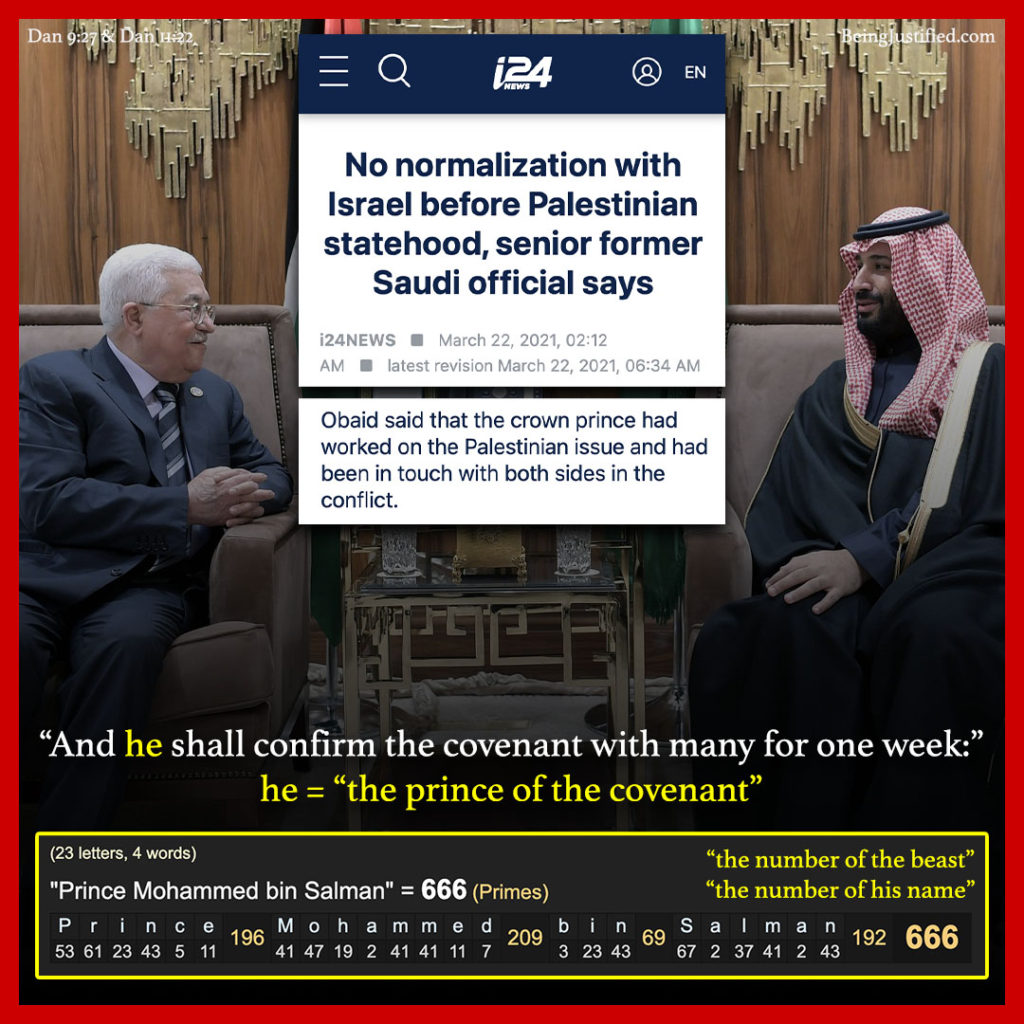PODCAST FOR THIS EPISODE:
Scripture to consider before the news:
“And he causeth all, both small and great, rich and poor, free and bond, to receive a mark in their right hand, or in their foreheads: And that no man might buy or sell, save he that had the mark, or the name of the beast, or the number of his name. Here is wisdom. Let him that hath understanding count the number of the beast: for it is the number of a man; and his number is Six hundred threescore and six.”
The he that will cause all the world to receive the mark of the beast is the final pope who is the false prophet. He will aid the first beast of Revelation 13 into the kingdom of the beast which will have a one world currency in the right hand or forehead to buy or sell, a one world government and one world religion that worships him as God, that is the new world order.
We are continuing to see the digital currency craze because we are coming to the final 70th week started by the prince and beast which after 42 months of confirming the covenant with many including Israel will conclude with the mark of the beast after the beast is slain of a sword and yet lives.
Now unto the news:
Crypto Captures the Mideast Market.

Blockchain-based currencies are making inroads in the Middle East with Dubai’s first-of its-kind crypto listing and the Bank of Israel’s trial of a digital shekel.
The Bitcoin Fund, that invests in long-term holdings of the cryptocurrency and was the first of its type to be listed on a major exchange, expanded to Nasdaq Dubai last week to ensure trading to all hours around the globe.
In Israel, where a recent central bank study concluded a digital currency could have a positive impact on the economy, Ethereum was picked for a trial of the payment system.
There was a word of caution, however. Qatar’s Chief Investment Authority Chief Executive Officer Mansoor Bin Ebrahim Al Mahmoud told Bloomberg’s Qatar Economic Forum that cryptocurrencies “need a bit of maturity before we make our view about investing.”
Bitcoin has roughly halved from its mid-April high of almost $65,000. The coin started 2021 trading around $29,000 following a fourfold increase in 2020.
In other news:
Oman urges Israel to create independent Palestinian state.
Scripture to consider:
“I will also gather all nations, and will bring them down into the valley of Jehoshaphat, and will plead with them there for my people and for my heritage Israel, whom they have scattered among the nations, and parted my land.”
The other big trend as we head into “the last days” will be the parting of God’s land of Israel with the “two-state solution.”
This parting looks to be a requirement for Saudi Arabia, the land of who is looking to be “the prince of the covenant” and “beast.”

Back to the news:
Oman’s foreign minister told his Israeli counterpart he hopes Israel’s new government will take concrete steps towards creating an independent Palestinian state with east Jerusalem as its capital, Omani state media said on Thursday.
Oman’s Badr al-Busaidi spoke by phone to Israel’s Foreign Minister Yair Lapid, according to ONA, the state news agency of Oman, which has a longstanding policy of neutrality in the turbulent region and often acts as a mediator.
In February, Busaidi said Oman was satisfied with its current relationship with Israel, even after fellow Gulf States the United Arab Emirates and Bahrain normalized ties with Israel last year under US-brokered accords.
Lapid will travel to the UAE this week in the first official visit by an Israeli minister to the Gulf state since they established diplomatic relations. He will inaugurate the Israeli Embassy in Abu Dhabi and the Consulate General of Israel in Dubai.
In related news:
New Israeli government likely to expand Abraham Accords.

Israeli Foreign Minister Yair Lapid is scheduled to travel to the United Arab Emirates this week, marking his first visit there since he became the country’s top diplomat.
The visit comes as Israel and the Biden administration seek to find common ground on mutual issues. While both have expressed a desire to expand the Abraham Accords, key differences are likely to remain on issues such as the Palestinians and Iran. Israeli Prime Minister Naftali Bennett, like his predecessor, is opposed to the United States rejoining the Iranian nuclear deal, and the new government is unlikely to possess the political willpower to make any significant moves on the Palestinian front.
The international move to offer Iran concessions has put countries like Saudi Arabia and the UAE on edge – not to mention Israel – and decreases their willingness to take diplomatic risks. As a result, the Saudis and Emiratis are again engaging with Tehran because they want to contain the damage of the revival of the nuclear deal, Reuters reported earlier this month.
Earlier this month, The Washington Post reported that the Biden administration is considering appointing former Ambassador to Israel Daniel Shapiro as a Middle East envoy to expand ties with Arab states and Israel.
Shapiro is currently a distinguished visiting fellow at INSS.
“Appointing a special envoy to promote the Abraham Accords would be positive, and if it is Shapiro, that would be a good choice,” said Yoel Guzansky, a senior research fellow at Israel’s Institute for National Security Studies. “The combination of the Biden administration’s emphasis on pushing the Palestinian file and the recent Gaza war means there may not be any momentum for new countries to join the Abraham Accords soon.”
These factors could keep Saudi Arabia on the sidelines, seeing no benefit from joining the accords.
During his recent visit to the region in late May, Blinken told Palestinian Authority leader Mahmoud Abbas that America would reopen its Jerusalem consulate to the Palestinians and provide $360 million in support.
In addition to causing more malign behavior from the Palestinians, this approach could also cool off other Arab states from joining the peace deal.
“The Saudis and other Arab states may be thinking: Why join the Abraham Accords now and risk embarrassment if there is another Gaza war soon?” added Guzansky, a non-resident scholar at the Middle East Institute and who previously served on Israel’s National Security Council.
He sees a significant risk that another Gaza war could break out in the not-so-distant future.
Regarding the Abraham Accords, “nobody knows what these deals entail in their entirety,” he said, though added that these agreements “passed their first test with the Gaza war as none of these countries canceled the deal or withdrew their ambassadors, but only voiced rhetorical concern.”
“With time, as the new government gains confidence, combined with international pressure, it could be that it would take a more active role in the Palestinian issue after it deals with passing a budget,” he assessed.
However, he warns that dealing with the Palestinian issue could also “lead to the government’s breakup in a year-and-a-half to two years.”
For this reason, it is most reasonable to expect the new government to focus on expanding the Abraham Accords to more Arab and Muslim-majority countries, and for now, keep the divisive Palestinian issue on the backburner.
Lastly:
The National Guard Just Simulated A Cyberattack That Brought Down Utilities Nationwide.
This year’s Cyber Yankee exercises simulated the increasingly likely scenario of cyberattacks crippling huge sections of the nation’s infrastructure.
National Guardsmen just completed a two-week training exercise which saw them respond to a simulated cyberattack that took out critical utilities across the United States. The exercises have become an annual event, but this year took on even more significance after coming on the heels of several major ransomware and cyber attacks that crippled large parts of American infrastructure in recent months.
The exercises were part of the seventh Cyber Yankee, an training event that brings together guardsmen from throughout the New England region to test their responses against simulated cyberattacks. This year’s exercises simulated a cyber attack that targeted utilities on the West Coast before spreading east across the United States towards New England. In addition to offering hands-on training on how to respond to active cyberattacks, the exercise was also intended to build cyber defense collaboration between the National Guard and private sector partners, the FBI, the Department of Homeland Security’s Cybersecurity and Infrastructure Security Agency, the Federal Energy Regulatory Commission, and U.S. Cyber Command, among others.
As recent events have shown, cyber attacks don’t have to disable missile defense systems or satellites to inflict damage and cause major disruptions. Cyberattacks on private companies like Colonial Pipeline can do just as much harm by interrupting fuel supply operations, while a ransomware attack on a commercial electrical utility companies could no doubt cause massive damage as the basic sustainment and public safety systems the nation depends upon daily go dark. We can likely expect exercises like Cyber Yankee to ramp up and become more complex as the cyber threat continues to proliferate and the U.S. government finds more ways to mitigate and defend against it.
We here at the Watchman Report notice that every time there is a “simulation” by a government agency, it tends to come to pass in real-time shortly after.
Get ready for the power grid going out.




